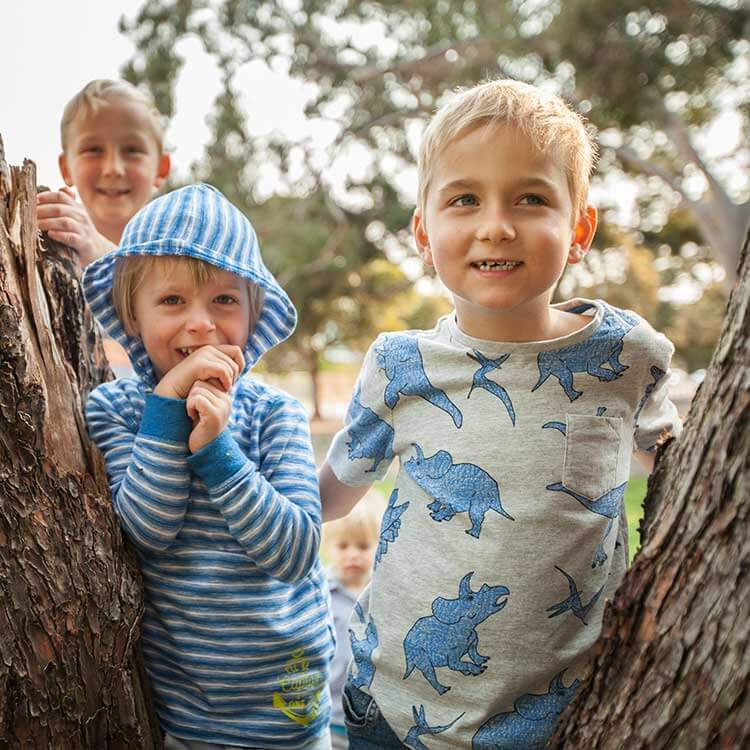Search
Showing results for "Professor"
News & Events
New study exposes link between pesticides and childhood brain tumoursA new Telethon Institute study has revealed a potential link between pesticide treatments in the home and a higher risk of children developing brain tumours.
Research
A Family's Journey at JHC: Analyses of routinely collected dataDesiree Silva MBBS, FRACP, MPH, PhD Co-Director, ORIGINS desiree.silva@thekids.org.au Co-Head, The ORIGINS Project Professor Desiree Silva is

News & Events
Aussie kids using strengths to overcome hurdlesThe Multiple Strength Indicator is a strength based measure that provides information on children’s developmental strengths as they commence full-time school.
Research
Prenatal testosterone exposure is related to sexually dimorphic facial morphology in adulthoodPrenatal testosterone may have a powerful masculinizing effect on postnatal physical characteristics.
Research
Quantitation of IgE Binding to the Chitinase and Chitinase-Like House Dust Mite AllergensThe prevalence of IgE binding to the group 15 and 18 house dust mite (HDM) allergens of the Dermatophagoides species...
Research
High pneumococcal serotype specific IgG, IgG1 and IgG2 levels in serum and the middle ear of children with recurrent acute otitis mediaRecurrent acute otitis media (AOM), frequently caused by Streptococcus pneumoniae, is a major paediatric health problem.
Research
‘It depends entirely on the nature of those supports’: Community perceptions of the appropriateness of early support services for autistic childrenWe do not know much about what support services people think are okay for young autistic children. This study was a survey of 253 people. We asked autistic adults, parents, and professionals from Australia and New Zealand whether they thought it was okay to provide support services to autistic children.
Research
The seroprevalence of SARS-CoV-2-specific antibodies in children, Australia, November 2020 - March 2021Peter Britta Richmond Regli-von Ungern-Sternberg AM FAHMS MBBS MRCP(UK) FRACP MD, PhD, DEAA, FANZA Head, Vaccine Trials Group Chair of Paediatric
Research
A Survey of Autistic Adults from New Zealand on the Autism Diagnostic Process During Adolescence and AdulthoodThe diagnostic experiences of autistic adults in New Zealand have not been investigated and little is known globally about autistic adults' satisfaction with the autism diagnostic process. This study describes the diagnostic experiences of 70 autistic adults living in New Zealand and explores how these experiences are related to satisfaction during three stages of the diagnostic process. The results show that autistic adults were reasonably satisfied with the early query and diagnostic assessment stages, but were dissatisfied with the post-diagnostic support stage, with significant unmet needs. Dissatisfaction during the post-diagnostic support stage was also related to satisfaction during previous stages and poor coordination of supports. Suggestions are made on how to improve the autism diagnostic pathway for autistic adults in New Zealand.
Research
The Comprehensive Autistic Trait Inventory (CATI): development and validation of a new measure of autistic traits in the general populationTraits and characteristics qualitatively similar to those seen in diagnosed autism spectrum disorder can be found to varying degrees in the general population. To measure these traits and facilitate their use in autism research, several questionnaires have been developed that provide broad measures of autistic traits [e.g. Autism-Spectrum Quotient (AQ), Broad Autism Phenotype Questionnaire (BAPQ)]. However, since their development, our understanding of autism has grown considerably, and it is arguable that existing measures do not provide an ideal representation of the trait dimensions currently associated with autism. Our aim was to create a new measure of autistic traits that reflects our current understanding of autism, the Comprehensive Autism Trait Inventory (CATI).
Research
The EU Child Cohort Network’s core data: establishing a set of findable, accessible, interoperable and re-usable (FAIR) variablesThe Horizon2020 LifeCycle Project is a cross-cohort collaboration which brings together data from multiple birth cohorts from across Europe and Australia to facilitate studies on the influence of early-life exposures on later health outcomes. A major product of this collaboration has been the establishment of a FAIR (findable, accessible, interoperable and reusable) data resource known as the EU Child Cohort Network. Here we focus on the EU Child Cohort Network's core variables.
